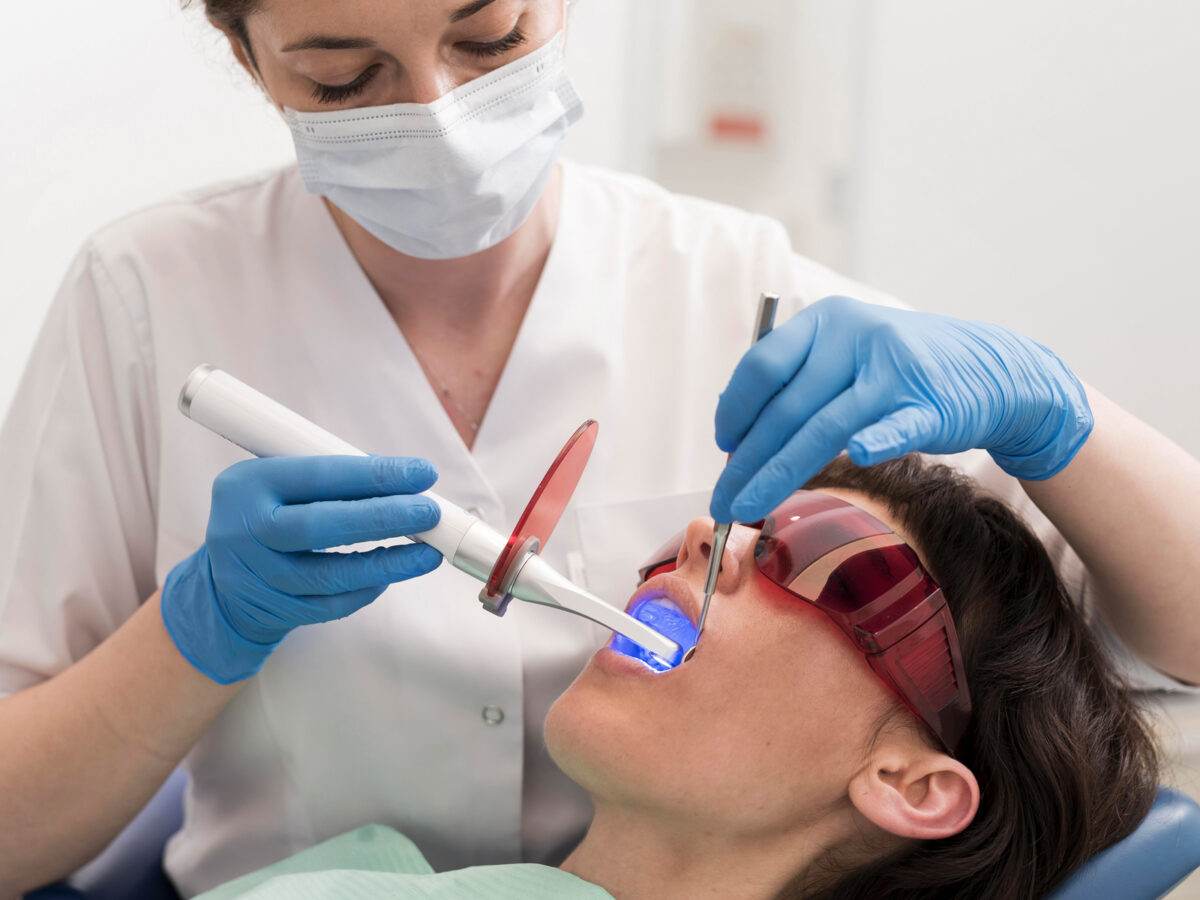Blog
Dental hygiene tips for healthy teeth & gums

Pros And Cons Of Laser Dentistry Treatments
Laser dentistry is a specialized field within dentistry that utilizes lasers for various dental procedures, including tooth reshaping and teeth cleaning. Many people with dental anxiety find laser treatment appealing because it often requires less local anesthesia, resulting in reduced pain or discomfort during procedures.
A dental laser is a focused beam of light energy that generates heat, which dentists use to reshape, cut, and clean both hard and soft tissues inside the mouth. Laser dentistry offers several advantages, but it also comes with its own set of benefits and drawbacks. In this article, we’ll explore the pros and cons of laser dentistry to help you make an informed decision when considering this option for dental treatments.
Advantages of Laser Dentistry
- Minimally Invasive Procedures: Laser dentistry is minimally invasive, allowing for less tissue removal during procedures. This results in faster healing times, less discomfort, and reduced bleeding compared to traditional methods.
- Reduced Pain: In many cases, laser treatments minimize or eliminate the need for local anesthesia because they numb the treatment area and cause minimal discomfort. Patients often experience less pain during and after laser procedures.
- Less Bleeding and Swelling: Laser energy cauterizes and sterilizes tissues, reducing the risk of infection and bleeding. Unlike traditional surgery, laser treatments don’t require stitches, promoting quicker recovery.
- Enhanced Precision and Control: Dentists can achieve a high level of precision with lasers, making it easier to preserve healthy tissue while performing procedures. This precision helps patients maintain their natural tooth structure.
- Versatility: Laser dentistry offers a wide range of treatment options, from gum contouring to early cavity detection, making it a versatile choice for various dental issues.
- Anxiety Reduction: Unlike traditional drills, lasers produce minimal vibrations and noise, making them an excellent choice for individuals with dental anxiety.
- Treatment Options for Gum Disease: Laser treatments can effectively address gum disease, providing a more pleasant experience for patients by avoiding the need for traditional flap surgery, which can be uncomfortable.
Disadvantages of Laser Dentistry
- Effectiveness on Larger Cavities: Laser dentistry may not be as effective for larger cavities or those between teeth. In such cases, traditional methods might be necessary.
- Inability to Remove Oral Restorations: If you have damaged oral restorations like crowns or bridges, lasers cannot be used to remove them. Traditional procedures and tools are required.
- Higher Cost: Laser treatments tend to be more expensive than conventional dental procedures, which can be a deterrent for some patients.
- Limited Availability: Not all dental practices have the necessary laser equipment or expertise. Finding a qualified laser dentist may be challenging in some areas.
- Specialized Training: Dentists need specific training to use laser technology effectively. Patients should ensure their dentist has the necessary expertise and experience.
In conclusion, laser dentistry offers several benefits, including minimally invasive procedures, reduced pain, and faster recovery times. However, it may not be suitable for all dental issues, and its higher cost can be a consideration.
When considering laser dentistry, consult with your dentist to determine if it’s the right option for your specific dental needs. Your dentist can provide guidance based on your oral health and treatment goals.
